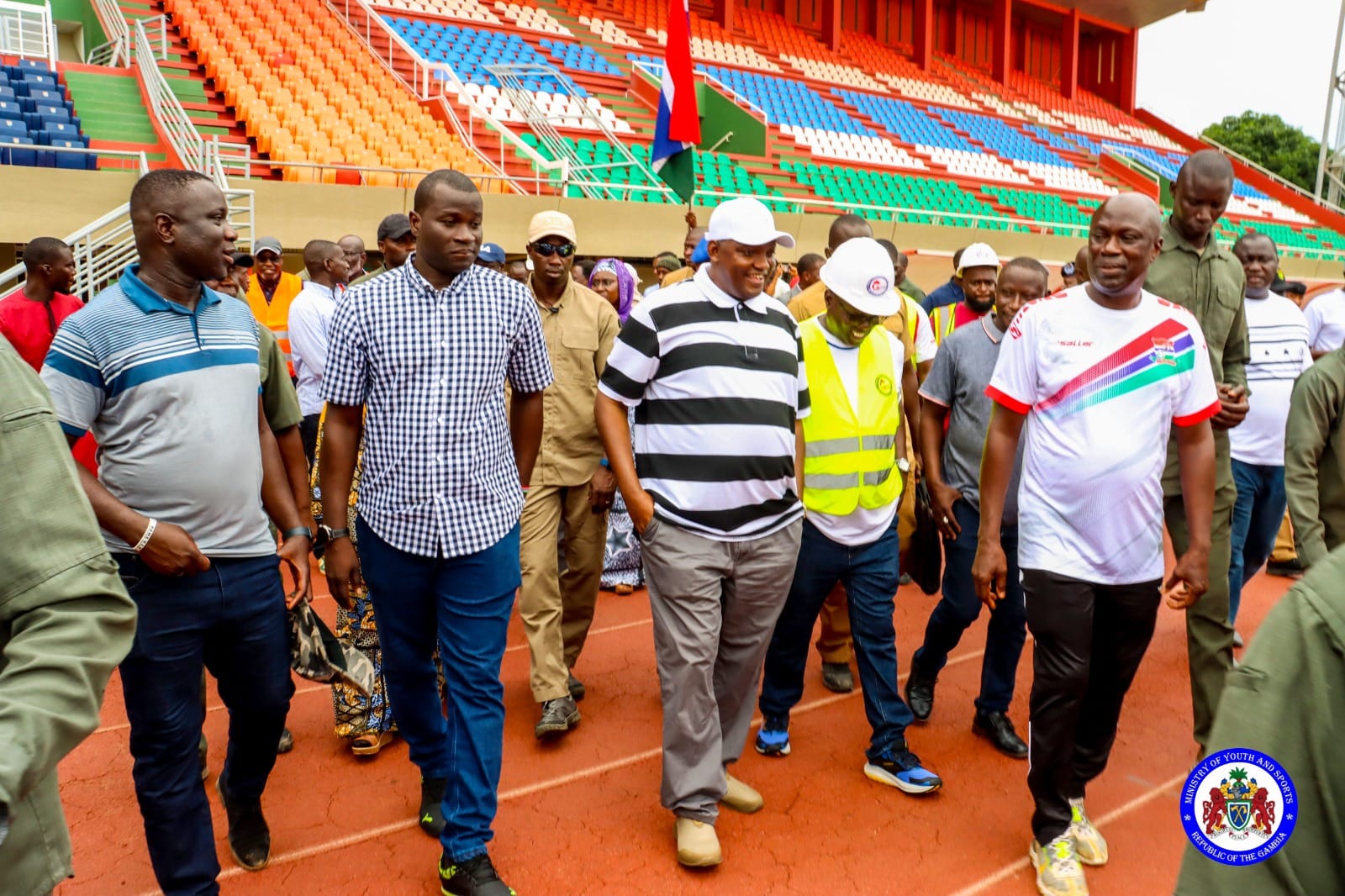Gambiaj.com – (BRAZAVILLE, Congo) – In a significant development for Congolese football, the Confederation of African Football (CAF) has lifted the ban on the Alphonse Massamba-Débat Stadium in Brazzaville, allowing the country to host international matches once again. This decision marks a pivotal moment for Congo, as the stadium had been previously blacklisted due to non-compliance with CAF’s stringent infrastructure and safety standards.
The lifting of the ban comes after extensive renovations and upgrades to the stadium, addressing the issues highlighted by CAF inspectors. The improvements reportedly include enhancements to seating, lighting, and safety protocols, bringing the venue up to the required standards for hosting high-profile matches.
The news has been met with celebration in Congo, with football fans and officials expressing relief and optimism about the future of the sport in the country. The lifting of the ban not only allows Congo to host upcoming international fixtures but also boosts the morale of the national team, which had been forced to play its home games in neighboring countries.
However, while Congo celebrates, the situation remains grim for several other African nations, including The Gambia, whose national stadiums continue to face bans. The Independence Stadium in Bakau, The Gambia, remains on CAF’s list of prohibited venues, a situation that has forced the Gambian national team to play its home matches abroad.
The continued ban on The Gambia’s stadium is part of a broader trend in African football, where several nations have struggled to meet CAF’s increasingly rigorous standards. These restrictions have had significant implications for the affected countries, often leading to financial strain and logistical challenges as teams are forced to relocate their home games.
Critics argue that while CAF’s stringent regulations are essential for player safety and the overall quality of the sport, they also disproportionately affect smaller nations with limited resources. The Gambia, like many other affected countries, has faced difficulties in securing the necessary funding and expertise to undertake the required renovations.
In response to the bans, several African nations have called for greater support from CAF and international bodies, arguing that assistance in the form of funding, technical expertise, and capacity-building initiatives is crucial for ensuring that more countries can bring their stadiums up to standard.
Like The Gambia, the Comoros Islands have lost the right to host their home games in Moroni due to the substandard condition of their stadium in the island capital. As a result, they are being forced to relocate their Group A match against The Gambia to El Jadida, Morocco.
The Indian Ocean nation is among 18 countries currently banned from using their home venues due to non-compliance with CAF’s standard requirements.
Zimbabwe is another country facing a similar challenge, lacking a suitable home venue. Consequently, after traveling to Uganda to face Kenya, Zimbabwe has opted to remain in Kampala for their second game during the international window, which will be a “home” match against Cameroon on Tuesday, September 10.
As Congo basks in the success of having its stadium ban lifted, the continued struggles of nations like The Gambia serve as a stark reminder of the challenges faced by African football. The situation underscores the need for a more collaborative approach to infrastructure development on the continent, one that balances the demands of international standards with the realities faced by smaller and less affluent nations.
For now, while Congo prepares to welcome international teams back to Brazzaville, The Gambia and others remain in limbo, awaiting the day when they too can once again play on home soil.










